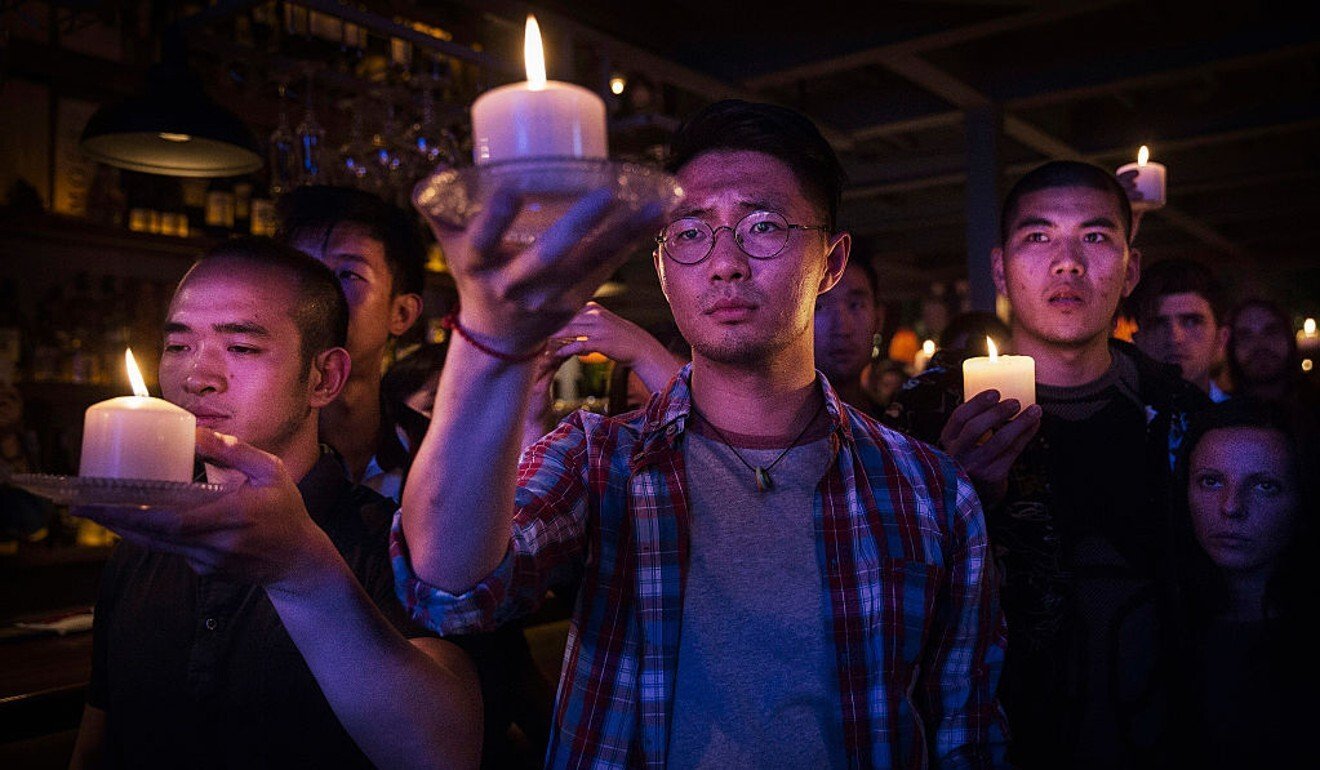Annual progress report on LGBTQ rights in the world notes some same-sex couples can now gain legal protection in China, but barriers to freedom of expression remain.
In China, homosexuality was decriminalised in 1997. Previously, consensual sexual acts between people of the same sex were considered “hooliganism”, with punishments ranging from imprisonment to execution. However, China still offers no protection or recognition of the lesbian, gay, bisexual, transgender, and queer (LGBTQ) community, a new report says.
Although same-sex marriage is not legal, Chinese couples have found other ways to gain some legal protection, the global progress report on LGBTQ rights by the International Lesbian, Gay, Bisexual, Trans and Intersex Association (ILGA World) said.
In mid-2019, a same-sex couple married overseas became the first in Beijing to be named as each other’s “legal guardians”, a status considered fairly similar to a civil union. At least 10 other LGBTQ couples in China have gone through similar procedures in other cities including Shanghai and Chengdu.
However, the guardianship appointment process is complex and time-consuming. Couples explained to the Post previously that they had to meet lawyers several times over contract details.

“China’s situation isn’t the worst in Asia, but it still has room for improvement,” Xin Ying, executive director of the Beijing LGBTQ Centre, said. “Compared with countries where being LGBTQ is still a criminal offence, in China they can live in disguise.”
She noted there had been improvements in recent year. Many companies have issued policies that respect LGBTQ employees. Two hospitals in Beijing and Shanghai also started offering medical support for the transgender community, she said.
According to the report, 81 member states – including the United States, France and Thailand – now have laws protecting against LGBTQ discrimination in the workplace, up from only 15 two decades ago.
Same-sex couples can also legally marry in 28 states and territories – one of them in Asia (Taiwan – a non-UN member which legalised same-sex marriage in 2019), 16 in Europe, and the rest spread across the other continents.
In China, it is still difficult for LGBTQ organisations to register, and there’s still censorship of LGBTQ topics, such as the removal of same-sex kissing scenes on television.
In 2015, following the removal of a gay-themed web series, the Chinese government issued rules for the production of television series that ban content that expresses or displays “abnormal sexual relations or sexual behaviour, such as homosexuality”.
China also has no laws against “conversion therapy” – the practice of using drugs or shock treatment to change an individual’s sexual orientation back to heterosexual. However, victims of the practice have won sporadic court victories.
There is no estimate of how many people in China have undergone such therapy. News reports and social media posts about individual cases appear now and then. Last week, members of the LGBTQ community alerted police to a transgender girl, “Kecheng”, whose family were forcibly sending her to a camp to “correct” her behaviour.

“Furthermore, social support systems are not sensitive to LGBTQ-related issues, so when it comes to problems such as domestic violence in the community, there are still obstacles,” Xin said.
The ILGA World’s annual State-Sponsored Homophobia report says governments have used the Covid-19 epidemic to persecute an already vulnerable section of the community.
Enforced confinement at home during lockdowns to curb the spread of Covid-19 was encouraging a more “unequal and violent” world, said Julia Ehrt, director of programmes at ILGA World.
“For our communities, safe spaces shrank dramatically overnight. Some governments took advantage of these circumstances and stepped up their efforts to oppress, persecute, scapegoat, and to violently discriminate against us. In many places where laws were already a cause of inequality, things have only got worse,” Ehrt said.
The report found that in at least 42 countries – including China, Russia and Ethiopia – there are legal barriers to freedom of expression regarding LGBTQ issues. In 51 states – among them Singapore, Belarus and Fiji – laws have been passed disallowing the “formation, establishment or registration” of LGBTQ organisations.
Same-sex activity is illegal in nearly 70 countries. It is punishable by death in Brunei, Iran, Mauritania, Nigeria’s 12 northern states, Saudia Arabia and Yemen. All are United Nations members.
More than 1,600 LGBTQ rights organisations from around the world contributed to ILGA World’s research and analysis of more than 3,750 external sources, including legislation, legal opinions, academic texts, news articles and activist testimonies.















